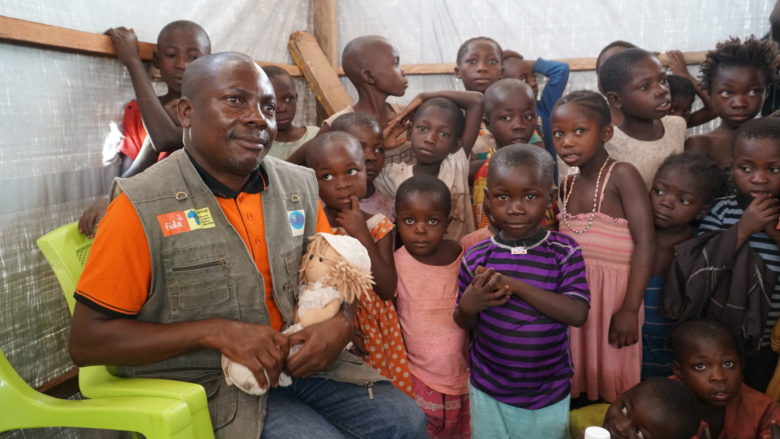Humanitarian aid in DR Congo

The Democratic Republic of Congo, Africa’s second largest country, has suffered decades of conflict. Congo is one of the five poorest countries in the world. It is facing one of the world’s longest-running humanitarian crises.
Congo has the highest number of internally displaced people on the African continent, 5.7 million, of whom 1.29 million fled their homes in 2022 alone. Congo also has the highest number of food insecure people in the world, 26.4 million.
Everyday survival and school in focus
Fida is responding to the humanitarian emergency in the provinces of South and North Kivu, together with the local partner, CEPAC. The project improves people’s living conditions, psychosocial well-being and school possibilities. It is important for children to be able to continue their primary education in the midst of a crisis. A safe school is every child’s right and a prerequisite for survival. Altogether, the project is reaching 80 000 people, 70% of whom are children and 10% people with disabilities.
- Food aid, seeds and agricultural tools are distributed to families. Cash assistance is provided to enable people to buy the things they need.
- 30,000 people are involved in psychosocial support activities. Those include raising community awareness, running child friendly spaces, and providing psychological first aid and counselling.
- Fida and CEPAC are rebuilding schools and providing learning materials, school fees and school meals for the poorest families.
- Teachers are being trained in the mental well-being of pupils. Communities are raising awareness of the importance of school attendance in times of crisis.
Fida has been working in DR Congo since 2006, in partnership with the pentecostal church CEPAC (Communauté des Eglises de Pentecôte en Afrique Centrale).
The project is funded by the Finnish Ministry for Foreign Affairs. The funding is €1.4 million for the period 2023-2024.
